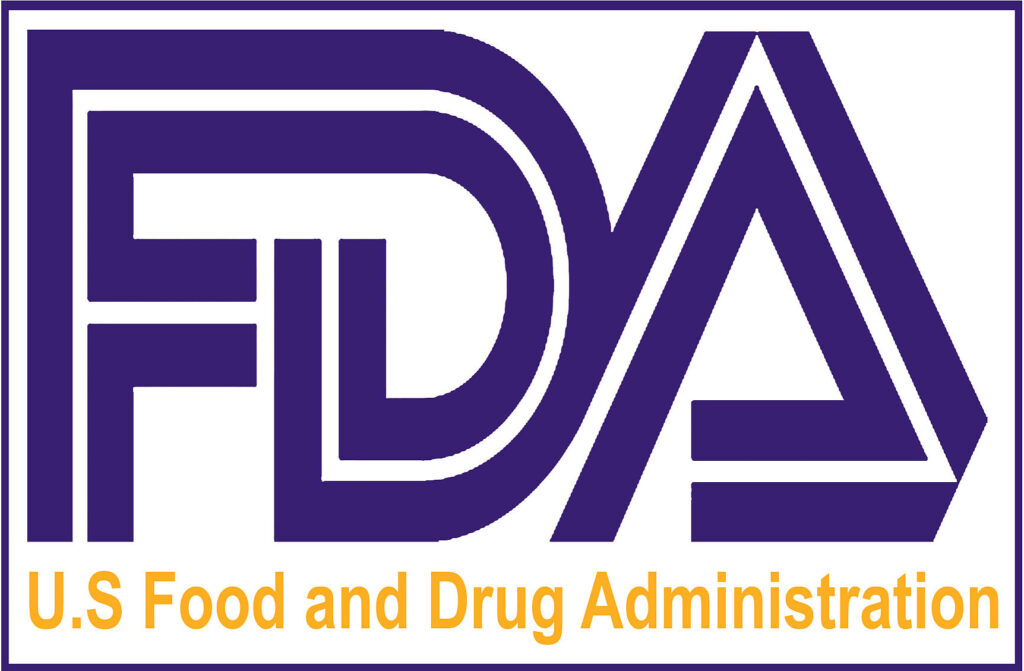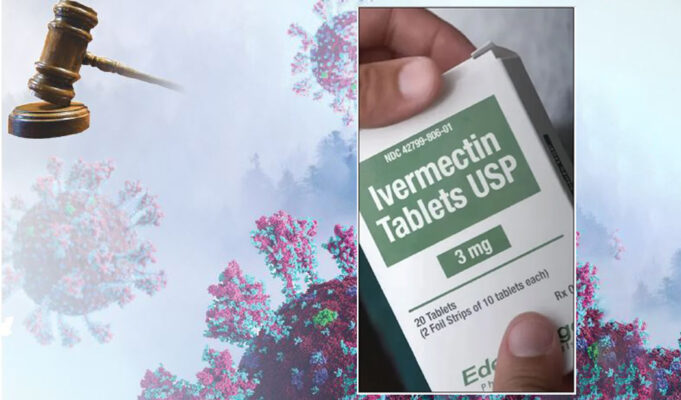by Michael Nevradakis, Ph.D. The Defender
The 5th Circuit U.S. Court of Appeals on Sept. 1 ruled the U.S. Food and Drug Administration exceeded its authority under federal law when it advised the public against using ivermectin.
This article was originally published by The Defender—Children’s Health Defense’s News & Views Website
A federal appeals court last week overturned the dismissal of a lawsuit against the U.S. Food and Drug Administration (FDA), ruling that the agency exceeded its authority under federal law when it advised the public against using ivermectin.
Three doctors—Robert Apter, Mary Talley Bowden and Paul E. Marik, co-founder of the Front Line Critical Care Alliance (FLCCC)—in June 2022 sued the FDA, the U.S. Department of Health and Human Services (HHS), FDA Commissioner Robert Califf and HHS Secretary Xavier Beccera in the U.S. District Court for the Southern District of Texas.
The doctors alleged the FDA’s guidance on ivermectin interfered with the doctor-patient relationship and their ability to prescribe an approved medication.
They also said their careers and professional reputations were harmed, as they faced sanctions from their employers, including suspensions and loss of privileges.
“Attempts by the FDA to influence or intervene in the doctor-patient relationship amount to interference with the practice of medicine, the regulation of which is—and always has been— reserved to states,” the complaint stated.
The lawsuit also noted that the FDA approved ivermectin in 1996 for the treatment of a variety of diseases.
On Dec. 6, 2022, U.S. District Judge Jeffrey Brown dismissed the lawsuit. Brown ruled the FDA has “sovereign immunity” granting it protection against most civil lawsuits, and that the plaintiffs had not successfully claimed they were directly harmed by any FDA action.
In its Sept. 1 decision, the 5th Circuit U.S. Court of Appeals disagreed with this aspect of the lower court’s reasoning, finding that “the Doctors can use the APA [Administrative Procedure Act] to bypass sovereign immunity and assert their ultra vires claims against the Agencies and the Officials.”
Ultra vires claims describe “actions taken by government bodies or corporations that exceed the scope of power given to them by laws or corporate charters.”
Ray Flores, senior counsel for Children’s Health Defense (CHD), told The Defender, “One of the three issues raised in the appeal was sufficient to overturn the District Court’s dismissal of the case.”
U.S. Circuit Judge Don Willett, writing for the three-judge panel, said, “FDA can inform, but it has identified no authority allowing it to recommend consumers ‘stop’ taking medicine.”
Referring to a series of social media posts and public pronouncements by the FDA against the use of ivermectin for the treatment of COVID-19, Willett said, “FDA is not a physician. It has authority to inform, announce, and apprise — but not to endorse, denounce, or advise.”
“The Doctors have plausibly alleged that FDA’s [social media] Posts fell on the wrong side of the line between telling about and telling to,” he added. “FDA argues that the Twitter posts are ‘informational statements’ that cannot qualify as rules because they ‘do not “direct” consumers, or anyone else, to do or refrain from doing anything.’ We are not convinced.”
Kim Mack Rosenberg, acting general counsel for CHD, told The Defender, “This is an important decision and opens the door for doctors to vindicate important rights.”
She added:
“Damages alone cannot undo the harms the FDA caused with its notices. But legal recognition of the FDA’s role is critical, and these plaintiffs now have a chance to present their standing arguments to the District Court and hopefully further litigate these critical issues which should not be allowed to go unaddressed.”
Bowden lauded the ruling. “The FDA misled the public into thinking it has more authority than it does,” she said. “This decision confirms that the FDA is not your doctor and has no authority to tell doctors how to practice medicine.”
Other legal experts who spoke with The Defender also welcomed the ruling.
Attorney Todd Richardson, who represents Dr. Richard Eggleston, a retired Washington doctor facing the loss of his license over his public statements in favor of ivermectin, said that while “the administrative state is powerful and dangerous, this ruling trims it back and gives those fighting for the freedom of the people a little breath.”
However, attorney Rick Jaffe, who also represents Eggleston in the same case, warned that since state medical boards and private employers — not the FDA — ultimately are the entities that can launch disciplinary proceedings against doctors, the ruling is “a little more complicated and nuanced” than it may appear at first glance.
“The long and short of it is that state medical boards, not the FDA, regulate the practice of medicine,” Jaffe said. “They decide if the use of ivermectin and other off-label drug use aligns with the standard of care.”

However, “a win is a win, and it was a great victory in terms of helping roll back the administrative state in general and the overreach by the FDA,” he added.
The lawsuit has been remanded to the district court, which will now hear the case.
‘Federal health agencies have been skirting the law throughout the pandemic’
In their lawsuit, the doctors cited six FDA statements and publications including a COVID-19 FAQ that asked, “Should I take ivermectin to prevent or treat COVID-19?” and several social media posts.
Willett addressed the FDA’s messaging in his ruling, writing:
“Left unmentioned in most of that messaging: Ivermectin also comes in a human version. And while the human version of ivermectin is not FDA-approved to treat the coronavirus, some people were using it off-label for that purpose.”
During a November 2022 hearing, Isaac Belfer, an FDA lawyer, said:
“The cited statements were not directives. They were not mandatory. They were recommendations. They said what parties should do. … They did not say you may not do it, you must not do it. They did not say it’s prohibited or it’s unlawful. They also did not say that doctors may not prescribe ivermectin.”
However, Belfer’s statements appear to contradict the FDA’s social media posts, which linked to an FDA webpage advising the public why they should not use ivermectin to treat COVID-19. That webpage remains online as of this writing.
“Even tweet-sized doses of personalized medical advice are beyond FDA’s statutory authority,” Willett wrote, adding that such postings “aim[ed] to curb future action — not just label past action,” on the part of the public, and “directed consumers to take specific actions.”
Willett also noted that the FDA admitted the social media posts were published “as part of a ‘new recommended approach’ that comprised an ‘ambitio[us] effort to counter much of the vaccine [mis]information out there.”
Dr. Meryl Nass, an internist and member of CHD’s scientific advisory committee, told The Defender, “The FDA was being deliberately misleading by saying ivermectin was not ‘authorized or approved to treat COVID-19.’”
“The FDA knew a licensed drug does not need to be authorized or approved for its uses,” Nass said, referring to the off-label use of ivermectin for treating COVID-19. “The federal health agencies have been skirting the law throughout the pandemic.”
In January 2022, the Maine Board of Licensure in Medicine suspended Nass for prescribing medications such as ivermectin and hydroxychloroquine to patients and has faced hearings resulting from this suspension. Last month, Nass sued the board, alleging it violated her First Amendment rights.
In a blog post, Jaffe wrote that the FDA’s acknowledgment that doctors can legally prescribe ivermectin “has ZERO RELEVANCE in determining if a doctor can be prosecuted and sanctioned by a state medical board for prescribing these drugs for Covid.”
“Big picture wise, it’s a matter of federalism, i.e., the division of responsibilities between the federal and state governments. And the law is very clear here on who calls the shots,” he wrote.
“[The 5th Circuit ruling] could help cases of public speech COVID misinformation, to the extent that medical boards cite in part rely on the FDA’s position statement,” Jaffe said. “However, it is just one part of the off-label battle. The real battle is going to be against the medical boards in standard of care cases.”
Flores noted that while the FDA cannot directly take disciplinary actions or levy sanctions against doctors, its advice carries significant weight with federal, state and local officials, state medical boards and private employers. He said:
“This is the trickle-down, cat and mouse game. Federal agencies recommend … but don’t issue an edict or mandate.
“Then, other officials in federal, state and local governments use these recommendations as an excuse for mandates, disciplinary actions, censorship and school requirements … With the FDA making such pronouncements, it is easy for disciplinary bodies to threaten doctors based on FDA recommendations.
“This time, the FDA was caught in its own game.”
FDA admits doctors have the authority to prescribe ivermectin to treat COVID
During oral arguments before the 5th Circuit on Aug. 8, Ashley Cheung Honold, a U.S. Department of Justice lawyer representing the FDA, said the “FDA explicitly recognizes that doctors do have the authority to prescribe ivermectin to treat COVID.”
“FDA made these statements in response to multiple reports of consumers being hospitalized, after self-medicating with ivermectin intended for horses, which is available for purchase over the counter without the need for prescription,” she added.
However, Bowden told The Epoch Times that many pharmacists still refuse to fill ivermectin prescriptions. She said:
“This needs to come to an end. In telling my patients what medicines they can and cannot have access to, we effectively have a large group of pharmacists practicing medicine without a license. …
“They have no accountability for this, yet they are allowed to dictate patient care. I see it every single day. Enough is enough.”
In late 2021, Houston Methodist Hospital suspended Bowden and launched an investigation into her use of ivermectin to treat COVID-19 patients and for sharing her views about ivermectin on social media. She ultimately resigned.
Marik faced similar disciplinary action. In November 2021, Sentara Norfolk General Hospital suspended him after he sued the hospital for banning his treatment protocol, which included the use of ivermectin.
Apter was referred to the Washington Medical Commission and the Arizona Medical Board for disciplinary proceedings related to prescribing ivermectin to patients for the treatment of COVID-19.
As of this writing, Tennessee is the only state in the U.S. where ivermectin can be purchased without a prescription, after the passage of Senate Bill 2188 in April 2022.
Ivermectin was developed in the 1970s as a veterinary medicine to treat parasitic diseases in livestock. But a decade or so later it was hailed as a “wonder drug” and received approval for human use as a therapeutic against diseases such as river blindness — or onchocerciasis — and lymphatic filariasis.
A collection of 99 studies examining the efficacy of ivermectin in treating COVID-19 has shown an overall 62% improvement in patients. And a study published Aug. 8 in Cureus found that ivermectin reduces excess deaths by up to 74%.
William C. Campbell, Ph.D., a microbiologist and Drew University research fellow, and Satoshi Omura, Ph.D., a Japanese biochemist, won the 2015 Nobel Prize in Physiology or Medicine for their research on the drug.
Other key COVID-19-related cases challenging the federal government are currently before the 5th Circuit, including the Missouri et al. v. Biden et al. and Kennedy et al. v. Biden et al. censorship cases. In July, the two cases were consolidated, while the 5th Circuit heard oral arguments in Missouri et al. v. Biden et al. last month.
This article was originally published by The Defender—Children’s Health Defense’s News & Views Website under Creative Commons license CC BY-NC-ND 4.0. https://childrenshealthdefense.org/defender/appeals-court-fda-ivermectin-covid/













